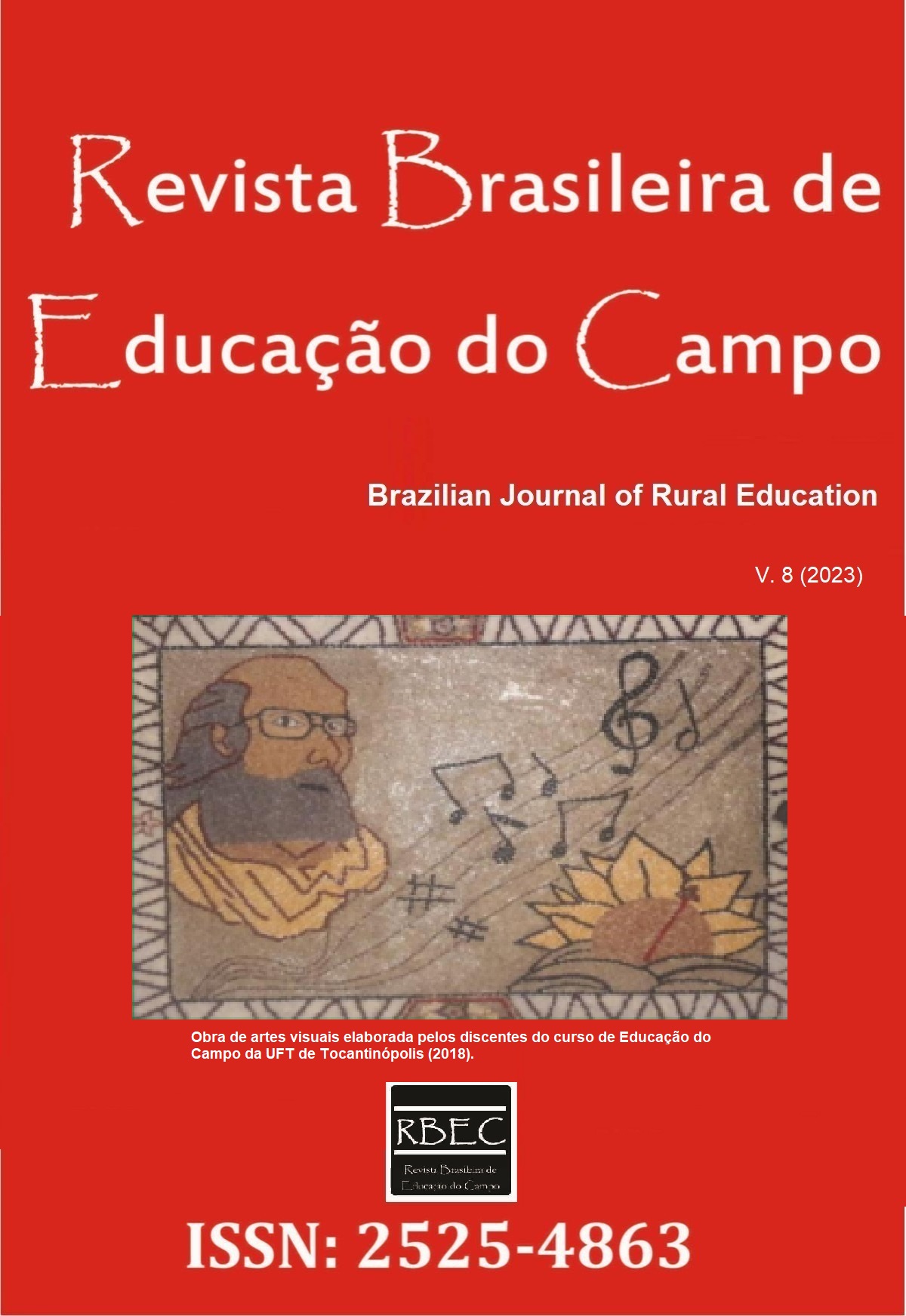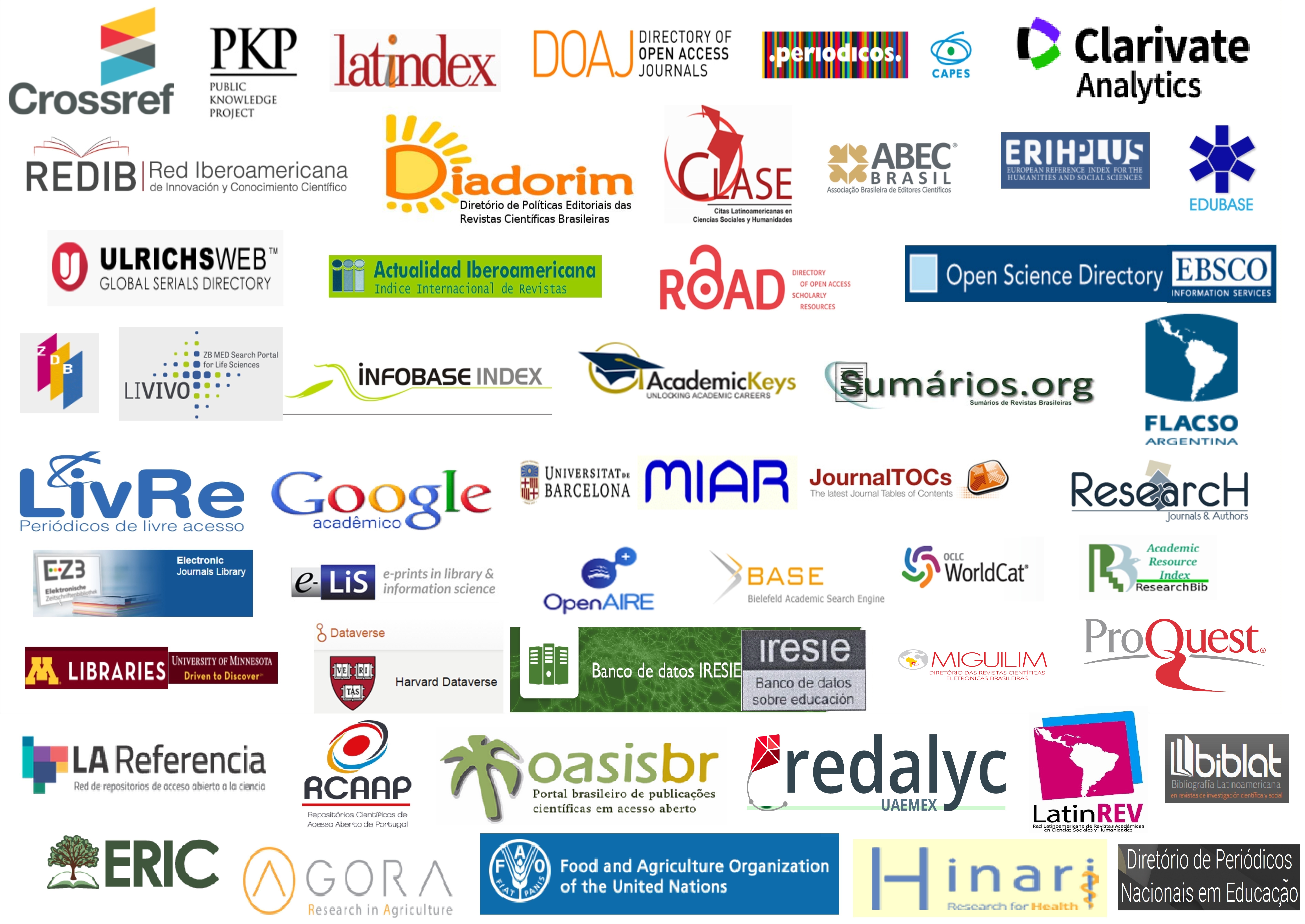O que nos dizem as crianças? A escuta e a observação apontando direções
DOI:
https://doi.org/10.20873/uft.rbec.e15801Resumo
Este artigo objetiva abordar a relevância da escuta e da observação no trabalho construído com as crianças. Para tal, apresentaremos um projeto realizado em uma escola pública, de Educação Infantil, na cidade do Rio Grande-RS. O alicerce dessa pesquisa foi qualitativo, composto pela teoria fundamentada dos dados e pela metodologia de projetos. Entre os principais resultados obtidos, destacamos que o pertencimento e as emoções são fatores fundamentais para um processo educativo compartilhado e significativo. Verificamos ainda, que as crianças estão abertas para comunicar os seus pensamentos, anseios e desejos. Nesse sentido, o exercício sensível da escuta e da observação mostra-se indispensável para um trabalho pedagógico que almeja ser realizado com respeito ao protagonismo das crianças.
Palavras-chave: crianças, escuta, observação, emoções, educação infantil.
What do Children tell us? Listening and observation pointing directions
ABSTRACT. This article aims to address the relevance of listening and observation in the work built with children. To this end, we will present a project carried out in a public school, of Early Childhood Education, in the city of Rio Grande-RS. The foundation of this research was qualitative, composed of grounded data theory and project methodology. Among the main results obtained, we highlight that belonging and emotions are fundamental factors for a shared and meaningful educational process. We also found that children are open to communicating their thoughts, desires and desires. In this sense, the sensitive exercise of listening and observation proves to be essential for a pedagogical work that aims to be carried out with respect for the protagonism of children.
Keywords: children, listening, observation, emotions, early childhood education.
¿Qué nos dicen los niños? Escucha y observación señalando direcciones.
RESUMEN. Este artículo tiene como objetivo abordar la relevancia de la escucha y la observación en el trabajo construido con los niños. Para ello, presentaremos un proyecto realizado en una escuela pública, de Educación Infantil, en la ciudad de Rio Grande-RS. El fundamento de esta investigación fue cualitativo, compuesto por teoría de datos fundamentados y metodología de proyectos. Entre los principales resultados obtenidos, destacamos que la pertenencia y las emociones son factores fundamentales para un proceso educativo compartido y significativo. También encontramos que los niños están abiertos a comunicar sus pensamientos, deseos y anhelos. En este sentido, el ejercicio sensible de la escucha y la observación se muestra fundamental para una labor pedagógica que pretende realizarse con respeto al protagonismo de los niños.
Palabras clave: niños, escucha, observación, emociones, educación infantil.
Downloads
Referências
Assis, D., Moreira, L., & Fornasier, R. C. (2021). Teoria Bioecológica de Bronfenbrenner: a influência dos processos proximais no desenvolvimento social das crianças. Research Society and Development, 10(10).
Barbosa, L. P., & Oeiras, J. Y. Y. (2008). Uso de Wikis em Projetos Escolares: experiências colaborativas com alunos de ensino fundamental. In Anais do Workshop de Informática na Escola (Vol. 1, No. 1).
Bhering, E., & Sarkis, A. (2009). Modelo bioecológico do desenvolvimento de Bronfenbrenner: implicações para as pesquisas na área da Educação Infantil. Horizontes, 27(2), 7-20.
Brasil. (2010). Diretrizes Curriculares Nacionais para Educação Infantil, DCNEI.
Brasil. (1996). Lei de Diretrizes e Bases da Educação Nacional, LDB. 9394/1996.
Bronfenbrenner, U. (2011). Bioecologia do desenvolvimento humano: tornando os seres humanos mais humanos. ArtmedEditora.
Bronfenbrenner, U., & Morris, P. A. (1998). The ecology of developmental processes. In Damon, W., & Lerner, R. M. (Orgs.). Handbook of child psychology. Theoretical models of human development. New York: John Wiley.
Charmaz, K. (2009). A construção da teoria fundamentada: guia prático para análise qualitativa. Porto Alegre: Artmed.
Corsaro, W. A. (2002). A reprodução interpretativa no brincar ao faz-de-conta das crianças. Educação, Sociedade e Cultura, 17, 113-134.
Copetti, F., & Krebs. R. (2004). As propriedades da pessoa na perspectiva do paradigma Bioecológico. In Koller, S. (Org.). Ecologia do desenvolvimento Humano. São Paulo: casa do psicólogo.
Fochi, P. (2019). Mini-histórias: rapsódias da vida cotidiana nas escolas do observatório da cultura infantil-OBECI. Porto Alegre: Paulo Fochi Estudos Pedagógicos.
Freinet, C. (2001). Comment susciter le désir d’apprendre?. éd.
Haddad, L. (1997). Ecologia do atendimento infantil: construindo um modelo de sistema unificado de cuidado e educação (Tese de Doutorado). Universidade de São Paulo, São Paulo.
Le Breton, D. (2016). Antropologia dos sentidos. Petrópolis, RJ: Vozes.
Le Breton, D. (2017). Sociologia do Corpo. Petrópolis,RJ: Vozes.
Le Breton, D. (2019). Antropologia das emoções. Petrópolis, RJ: Vozes.
Luck, H. (2016). Metodologia de projetos: uma ferramenta de planejamento e gestão. Petrópolis, RJ: Vozes, 2003.
Merleau-Ponty, M. (1999). Fenomenologia da percepção. São Paulo: Martins Fontes.
Piske, E., & Garcia, N. (2022). Contribuições da Abordagem Bioecológica para a educação das infâncias: Estudos do Grupo Ecoinfâncias In Garcia, N. (2022). Educação das infâncias em diferentes contextos ecológicos: estudos e experiências do Grupo Ecoinfância (s./p.). Rio Grande, RS: Ed. FURG.
Monteiro, A. M. G., Oliveira, A. D. S., & Rondon, G. D. S. (2013). Metodologia de projetos na educação infantil: valores, saberes e desafios. Revista Educação e Linguagem, Cuiabá, 7(1), 40-53.
Rocha, E. (2008). Por que ouvir as crianças? Algumas questões para um debate cientifico multidisciplinar. In Cruz, S. H. (Org.). A criança fala: a escuta de crianças em pesquisas (s./p.). São Paulo: Cortez.
Queroz, J., & Stutz, L. (2016). A importância da observação de aulas na Educação Infantil. Calidoscópio, 14(1).
Publicado
Como Citar
Edição
Seção
Licença
Copyright (c) 2023 Hardalla do Valle, Angela Bersch, Eliane Piske

Este trabalho está licenciado sob uma licença Creative Commons Attribution 4.0 International License.
Proposta de Aviso de Direito Autoral Creative Commons
1. Proposta de Política para Periódicos de Acesso Livre
Autores que publicam nesta revista concordam com os seguintes termos:
a. Autores mantém os direitos autorais e concedem à revista o direito de primeira publicação, com o trabalho simultaneamente licenciado sob a Licença Creative Commons Attribution que permite o compartilhamento do trabalho com reconhecimento da autoria e publicação inicial nesta revista.
b. Autores têm autorização para assumir contratos adicionais separadamente, para distribuição não-exclusiva da versão do trabalho publicada nesta revista (ex.: publicar em repositório institucional ou como capítulo de livro), com reconhecimento de autoria e publicação inicial nesta revista.
c. Autores têm permissão e são estimulados a publicar e distribuir seu trabalho online (ex.: em repositórios institucionais ou na sua página pessoal) a qualquer ponto antes ou durante o processo editorial, já que isso pode gerar alterações produtivas, bem como aumentar o impacto e a citação do trabalho publicado (Veja O Efeito do Acesso Livre).
Proposal for Copyright Notice Creative Commons
1. Policy Proposal to Open Access Journals
Authors who publish with this journal agree to the following terms:
A. Authors retain copyright and grant the journal right of first publication with the work simultaneously licensed under the Creative Commons Attribution License that allows sharing the work with recognition of its initial publication in this journal.
B. Authors are able to take on additional contracts separately, non-exclusive distribution of the version of the paper published in this journal (ex .: publish in institutional repository or as a book), with an acknowledgment of its initial publication in this journal.
C. Authors are permitted and encouraged to post their work online (eg .: in institutional repositories or on their website) at any point before or during the editorial process, as it can lead to productive exchanges, as well as increase the impact and the citation of published work (See the Effect of Open Access).














